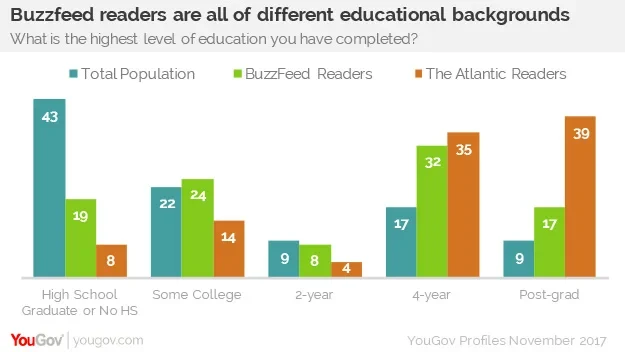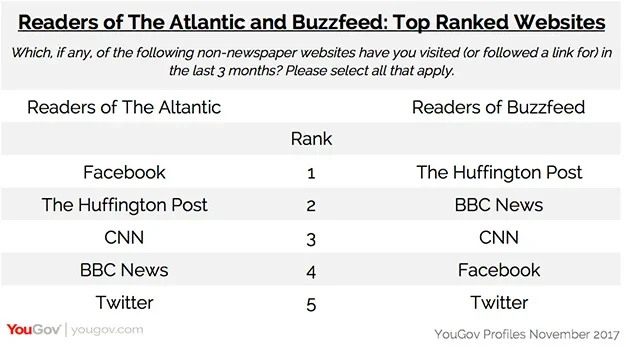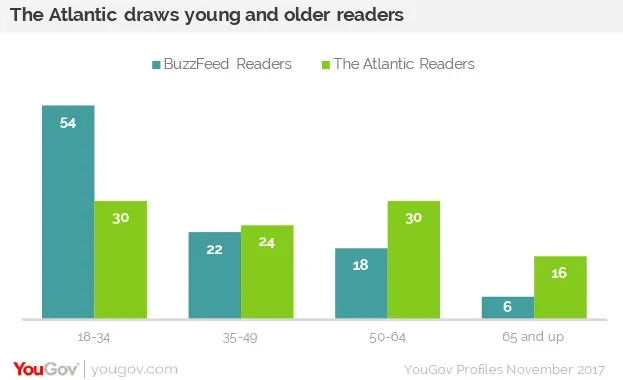42% of people who read The Atlantic also read BuzzFeed
The Atlantic just celebrated its 160th anniversary this month, having produced continuous content since before Abraham Lincoln was president. BuzzFeed has released a card game integrated with social media for the holiday season. Even in today’s age of varied and proliferated media, it’s hard to think of two organizations that produce more differing content.
But new analysis from YouGov Profiles shows that the people consuming them are often the same. 42% of Atlantic readers also visited BuzzFeed’s website within the past three months. This compares to 16% of the total US population.
And their readership as a whole has similar characteristics. The two groups show similar backgrounds in education, though Atlantic readers are more likely to have a post-grad education (39%) while more BuzzFeed readers largely have a 4-year university education (32%). The difference may be due to the large number of younger BuzzFeed readers; 24% of the site’s readers have only completed some college.

Readers of the two publications also have strikingly similar media consumption patterns. The top five most used websites for news – other than the Atlantic and BuzzFeed themselves – are made up of identical sources.
The two also list political and topical publications as the magazine genres they are most likely to read. More specifically, 35% of BuzzFeed’s readers also read political magazines, and 34% read news magazines. The Atlantic readers have an even greater penchant for these genres, with 76% reading political magazines; 72% read news magazines.

Readers of BuzzFeed and The Atlantic are also significantly more likely than average person to list the internet as their primary source of information. Compared to 67% of the general population, 70% of Atlantic readers and 81% of BuzzFeed readers give primacy to the web.
The readerships of the two also have similar criteria when it comes to trusting a news source. 90% of The Atlantic’s readers, and 80% of BuzzFeed’s, “trust news organizations that have a reputation for objectivity proven by track record.” Both of these are far above the 70% of all people who agree with the statement.
The major area the two groups differ is their age. While BuzzFeed’s readers are more likely to be millennials, The Atlantic’s are not.

However, the discrepancy highlights the congruence in tastes and attitudes between varying age demographics. The two publications draw from the same segment of media consumers that spans multiple generations. BuzzFeed just attracts more of its younger members, while The Atlantic attracts a more even distribution.
Learn more about YouGov Profiles
Image: Getty








